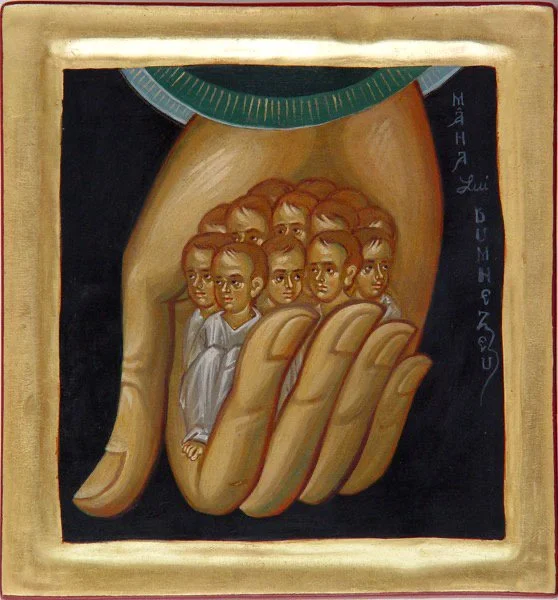An Orthodox View of Death
Icon—The Souls of the Righteous
Death is Abnormal
It is here that we reach the heart of the matter. For Christianity, help is not the criterion. Truth is the criterion. The purpose of Christianity is not to help people by reconciling them with death, but to reveal the Truth about life and death in order that people may be saved by this Truth. Salvation, however, is not only not identical with help but is opposed to it. Christianity quarrels with religion and secularism not because they offer “insufficient help,” but precisely because they “suffice,” because they “satisfy” the needs of men. If the purpose of Christianity were to take away from man the fear of death, to reconcile him with death, there would be no need for Christianity…
Christianity does not reconcile with death. It is the revelation of death, and it reveals death because it is the revelation of Life. Christ is this Life. And only if Christ is Life is death what Christianity proclaims it to be, namely the enemy to be destroyed, and not a “mystery” to be explained. Religion and secularism, by explaining death, give it a “status,” a rationale, make it “normal.” Only Christianity proclaims it to be abnormal and, therefore, truly horrible.
—For the Life of the World, by Fr. Alexander Schememann
Death is a Mystery
To fathom experientially or to understand rationally the mystery of death, that which takes place during the mysterious separation of the inseparable, is something that is impossible for us, despite all the theosophical guidebooks to the afterlife that are current available. But the whole of Christian anthropology leaves no doubt that the most agonizing of rupture takes place during this violent dis-incarnation, for death is ontologically unnatural.
—”On Holy Relics” by Fr. Sergius Bulgakov
Resurrection
Christ rose from the dead in humankind and with all humankind: all human beings without exception—because they are human beings, because they are one with Him and have the same nature as He—rose with Him, and death no longer has power over them…In other words, this signifies that death is not at all real, total death, i.e., the complete destruction of soul and body…Rather, it is only a swoon of life for the body and, correspondingly, only an incomplete, defective, potential state for the soul.
--—”On Holy Relics” by Fr. Sergius Bulgakov
Additional reading:
Relics and Miracles, by Fr. Sergius Bulgakov
The Christian Concept of Death, by Fr. Alexander Schemann
Understanding Death and the Resurrection, by Fr. Steven Kostoff

